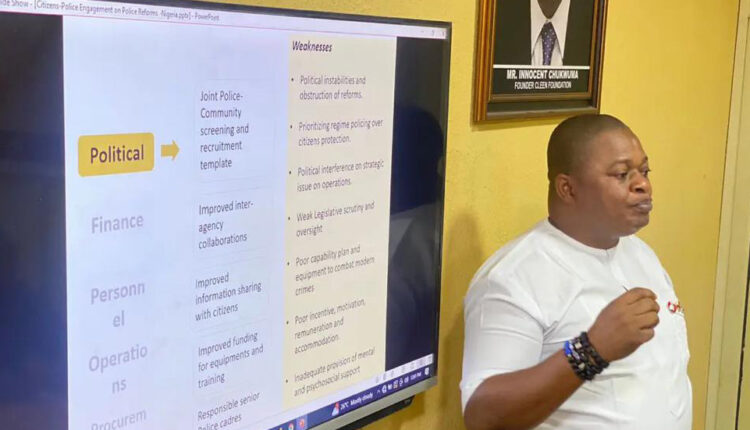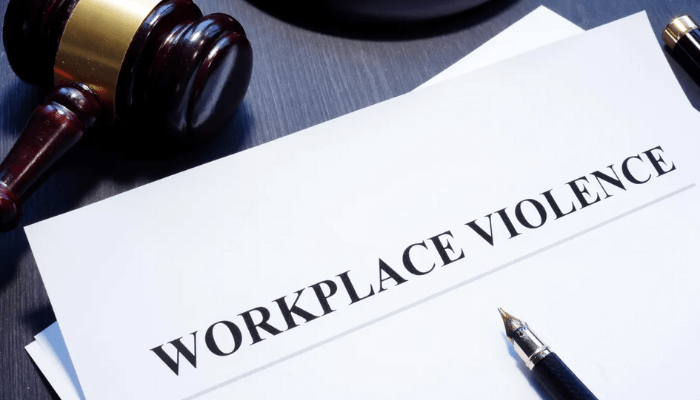
Gender Accountability And Transparency In The Implementation Of ACJA
- Gender
- No Comment
- 277

Access to justice promotes sustainable development by enabling active participation, reducing poverty, and strengthening peace and productivity in societies.
In Nigeria, however, women remain disproportionately excluded from justice systems due to systemic barriers, societal norms, and gaps in legal implementation. These challenges hinder not only the fight for gender equality but also the credibility and effectiveness of the justice system.
The Administration of Criminal Justice Act (ACJA) 2015 was introduced to reform Nigeria’s criminal justice system, but its implementation reveals significant issues, particularly regarding gender accountability and transparency.
While the ACJA has brought about critical innovations, its effectiveness is undermined by gender disparities, infrastructural limitations, and conflicts within existing legal frameworks.
Ensuring gender accountability within this law is not only a matter of fairness but also essential for fostering a just, equitable, and credible legal system.
Women and marginalised groups must be able to access justice without fear, bias, or systemic neglect.
This was the focus of a recent Policy Brief Presentation organized by the CLEEN Foundation in Lagos , where stakeholders gathered to examine gender-specific challenges in the implementation of the ACJA and propose actionable solutions.
The implementation of the ACJA 2015 reveals significant gaps that disproportionately affect women and marginalised demographics. These issues include gender biases in legal provisions, limited law enforcement support, and inadequate facilities for detainees.
One glaring example of gender disparity lies in Nigeria’s criminal codes, where physical harm to women is treated as a misdemeanour, while the same harm to men is categorized as a felony. Such legal inconsistencies reflect a systemic undervaluing of women’s rights and protection.
Furthermore, the coexistence of customary laws with statutory laws creates confusion and inconsistencies, especially in gender-sensitive cases.
In states like Katsina, for instance, females are still not allowed to stand as sureties, contrary to the ACJA’s provisions.
The poor detention conditions in correctional facilities also reveal troubling gender-related issues. In Cross River State, a 16-year-old girl was found detained alongside adult male inmates, a clear violation of human rights and due process. In Delta State, the situation is exacerbated by infrastructural deficiencies, as the entire state reportedly has only seven police lawyers to represent detainees. This critical shortfall limits access to legal representation for women and other vulnerable groups.
Gender-Based Violence (GBV) remains a significant challenge due to conflicts between the Penal Code and the Violence Against Persons Prohibition (VAPP) Law. Under the Penal Code, the age of consent is set at 15 years, whereas the VAPP Law classifies any sexual act involving a minor as rape. Such contradictions create legal loopholes that undermine justice for survivors. Cultural stigma, fear of retaliation, and lack of awareness further discourage women from reporting GBV cases, leaving perpetrators unaccountable.
Additionally, operational gaps persist within law enforcement agencies and the judiciary. Instances of “arresting in lieu,” where women are detained in place of male suspects, remain prevalent. Police stations often fail to record statements, and courts lack protocols to implement key provisions under the ACJA. There is also a notable disconnect between correctional facilities and courts, resulting in missed court dates and prolonged pretrial detentions.
Key Recommendations for Gender Accountability and Transparency
To address these systemic issues, a structured, gender-responsive approach must be adopted to enhance the implementation of the ACJA 2015. The following recommendations outline the necessary steps for ensuring transparency, accountability, and inclusivity within Nigeria’s justice system
Strengthening Legal Provisions and Eliminating Ambiguities
Gender biases within the criminal code must be eliminated. For example, physical harm to women should carry the same legal weight as harm to men.
Conflicts between the Penal Code and the VAPP Law must be resolved to ensure uniformity in the definition of offences, particularly around rape and the age of consent.
Specific sections of the ACJA, such as Section 20 on spousal battery, must be reviewed to ensure clarity and effective prosecution.
The unauthorised publishing of survivors’ identities, as seen in Section 40(1), must be accompanied by clear penalties to protect survivors’ privacy and dignity.
Improving Detention Conditions and Correctional Facilities Infrastructural investment is critical to address deficiencies in correctional facilities. Security, healthcare, and proper detention protocols must be prioritised to ensure humane treatment of female inmates.
Correctional facilities must implement policies that prevent minors, particularly young girls, from being detained alongside adult men.
Increased funding is needed to provide adequate legal representation through more pro-bono lawyers, particularly in states like Delta with severe shortfalls.
Enhancing Law Enforcement and Judiciary Operation Law enforcement agencies must adopt a zero-tolerance approach to practices such as “arresting in lieu” and the refusal to allow women to sign or stand as sureties.
Police stations should be equipped with modern interview rooms, digital evidence-gathering tools, and gender-responsive complaint structures.
Court systems must develop protocols for implementing non-custodial sentencing and ensuring timely hearings. Non-custodial sentences should include extensive community-based social services, beyond merely sweeping court premises.
Promoting Awareness and Training
Awareness campaigns must be conducted to educate citizens, particularly women, about their rights under the ACJA and related laws.
Law enforcement and judicial personnel require ongoing training on gender sensitivity, GBV response, and legal reforms to ensure compliance with ACJA provisions.
Emotional and psychological abuse must be prioritized in public awareness campaigns to address underreported issues affecting women.
Collaboration Among Stakeholders
A gender accountability roadmap must be devised to tackle challenges such as lack of collaboration, inadequate monitoring frameworks, and insufficient feedback mechanisms.
Continuous institutional engagement among law enforcement agencies, judicial personnel, and correctional officers is critical to bridging operational gaps.
Public hearings should be mandated for all relevant bills to ensure citizen participation and inclusivity in legal reforms.
Addressing Gender-Based Violence and Survivors’ Needs
Specialised courts for minor victims of GBV cases, similar to juvenile courts, should be established to ensure sensitive and effective handling of such cases.
Law enforcement agencies must improve their support for GBV survivors through gender-responsive complaint mechanisms and trauma-informed approaches.
Monitoring, Funding, and Feedback Mechanisms
Existing frameworks must be strengthened with gender-responsive budgets to prioritize reforms that directly impact women and marginalized groups.
Bail processes must be streamlined, with a maximum pretrial detention period of three months to prevent prolonged incarceration.
Effective monitoring and feedback mechanisms should be established to track the progress of ACJA implementation and address identified gaps promptly.
The Way Forward
The CLEEN Foundation, supported by the MacArthur Foundation, has been at the forefront of advocating for these reforms. Speaking during a recent Policy Brief Presentation on Gender Accountability and Transparency in the Implementation of the ACJA 2015, Salaudeen Hashim, Program Director at CLEEN, emphasized the need for coordinated efforts to address the infrastructural and operational gaps that hinder ACJA compliance.
Hashim stressed that investments in modern tools for police service points, correctional facilities, and court systems are critical to achieving the goals of the ACJA. He further noted the importance of integrating non-custodial sentencing with social services to foster community rehabilitation.
Blessing Abiri, Head of CLEEN Foundation Lagos, reaffirmed the Foundation’s commitment to driving reforms that prioritize transparency, accountability, and inclusivity.
She emphasized the need for a comprehensive analysis to evaluate the adherence of law enforcement agencies, the judiciary, and civil society organizations to ACJA provisions.
Ensuring gender accountability and transparency in the implementation of the ACJA 2015 is pivotal to achieving a just and equitable criminal justice system in Nigeria.
By addressing systemic biases, improving operational capacities, and fostering collaboration among stakeholders, the justice system can begin to meet the needs of all citizens, particularly women and marginalized groups.
A structured, gender-responsive approach, combined with continuous monitoring and public engagement, will lay the foundation for a credible and inclusive legal framework that promotes fairness, equity, and sustainable development for all Nigerians.
By Titilope Joseph
Gender Accountability And Transparency In The Implementation Of ACJA





